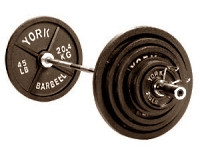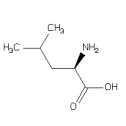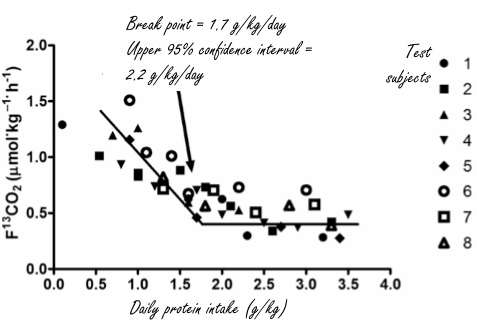|
Bodybuilding with protein-rich diet is healthier
Strength training will result in more muscle mass when combined with a protein-rich diet. Nothing new here, but that strength training combined with a protein-rich diet is healthier might be news to you. Researchers at Pusan National University in South Korea reach this conclusion in a small human study that they published in the Journal of Diabetes Investigation.
Study
The Koreans got 18 males in their twenties, none of whom had previously done weight training, to do strength training for a period of 12 weeks. The men did working sets with 60-80 percent of the weight with which they could just manage 1 rep.
Half of the subjects ate a more or less ‘normal’ diet during the experiment. The energy in their diet consisted of 60 percent energy derived from carbohydrates, 15 percent from protein and the remaining 25 percent from fat. [norm.-prot.]
The other half of the men ate a protein-rich diet. In that diet the energy was derived for 55 percent from carbohydrates, 30 percent from protein and 15 percent from fat. [high-prot.]
Both groups consumed the same amount of kilocalories.
Results
After the training period the researchers discovered that the men who had followed the high-protein diet had built up more lean body mass. This was not the case for the men who had consumed a normal amount of protein in their diet.
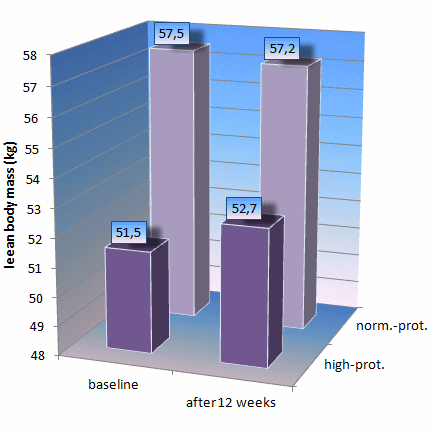
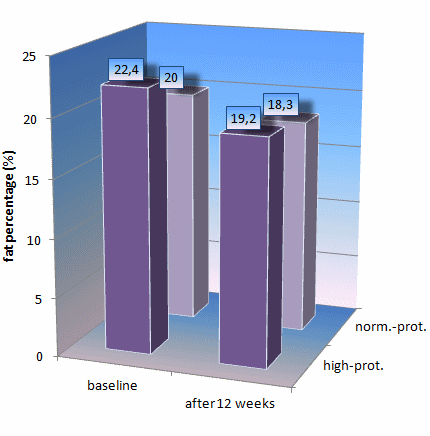
The body fat percentage had declined in both groups, but the decrease was bigger in the men who had eaten more protein.
The Koreans detected no dramatic effects of the combination of strength training and a high-protein diet on IGF-1, cortisol and testosterone levels. What they did observe was that there was considerably more growth hormone circulating in the blood of the subjects in the high-protein group than in the subjects that had eaten less protein.
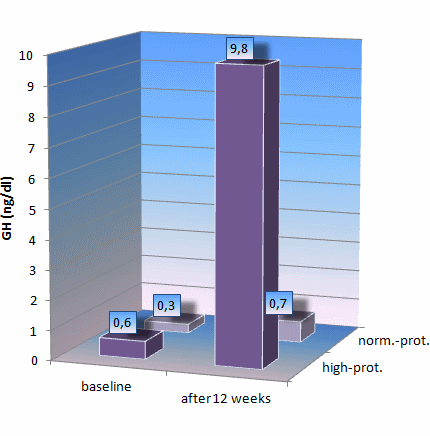
The HOMA-IR – a measure of insulin resistance – decreased in the men who had consumed a lot of protein. This meant that their cells became more sensitive to insulin, which is a positive sign.


Moreover, the cholesterol balance of the men who had eaten the high-protein diet improved. Their amount of 'good cholesterol' HDL increased.
Conclusion
"In conclusion, these findings suggest that there are hormonal interactions to ameliorate body composition, metabolic profiles, and energy metabolism after a long term higher protein diet and resistance exercise", the researchers summarise. "However, replication studies with various types of resistance exercise programs and high protein diet are required in order to confirm the results of the present study for current practice in the field."
Source:
J Diabetes Investig. 2014 Mar 23;5(2):242-7.
More:
Portion of protein every three hours is best for muscle building 16.05.2013
Strength training works even with a low protein intake 01.02.2013
High-protein intake not harmful for bodybuilders' bones 21.12.2011
Archives:
Strength Training & Nutrition
Protein
|

